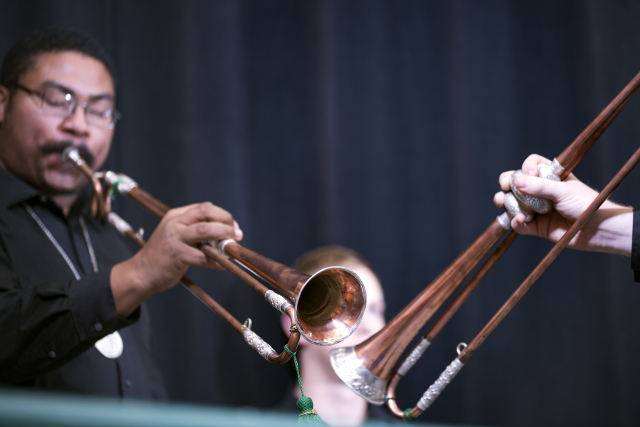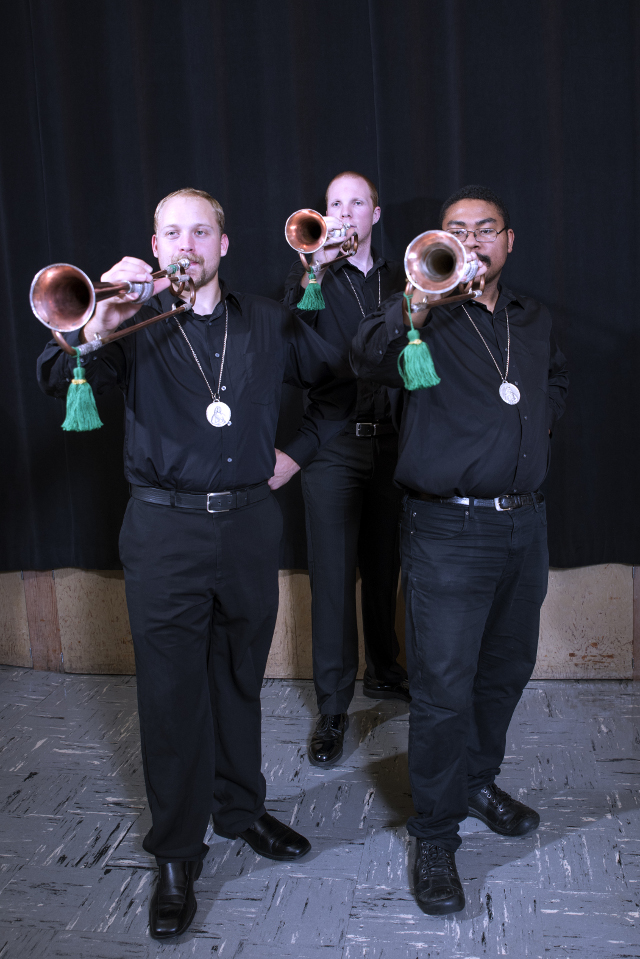
Welcome to the world of the baroque natural trumpet, an instrument played by only a few hundred people in the country. Among them are Music Professor Gil Cline and five HSU students. Together they form Trumpet Consort von Humboldt (TCvH).
Founded by Cline in 2003, TCvH is comprised mostly of Music majors, along with an occasional community member, who tackle the challenging instrument.
Played in the 1600s for royalty and at special occasions like civic and military events, the valveless instrument’s tubing is usually 8 feet long, creating a timbre that is richer than today’s garden-variety trumpet and not as loud.
Also, just as white light is comprised of multiple colors (a rainbow), so any single note we hear is made up of multiple notes. Brass instruments can play each of these one by one. A bugle plays 5 of these notes, while the baroque trumpet can play 16—all part of the Harmonic Series.
Cline teaches members of TCvH to play the baroque trumpet the traditional way: With feet in ballet open third position, body turned slightly sideways, fist on hip—and without sheet music.

“They didn’t write music down back then but played from memory like a rock band, which means they had to be very good musicians. Baroque trumpet players back in the old days practiced daily for hours. This was their life,” says Cline, who became one of a handful of professional baroque trumpet players when he first started playing in the ‘90s.
TCvH put its skills to the test in 2012 at the Historic Brass Society Symposium in New York City—an event that featured renowned baroque brass musicians.
Using replicas of 1667 baroque trumpets, TCvH played baroque and late Renaissance music, plus a rendition of “Low Rider,” and was the only group to perform without sheet music. The consort was a surprise hit of the concert and was invited to play at the symposium again this summer.
“I think they weren’t expecting to hear that level of professionalism,” recalls Music major Andrew Henderson, who played that day in 2012. A member of TCvH for the last five years, Henderson credits the group’s playing level to Cline and his devotion to students.
“Gil opened my eyes to the baroque trumpet and showed me another path I could take with music,” says Henderson. “He has a knack for helping you grow as a musician. His undying love of brass is very inspiring.”